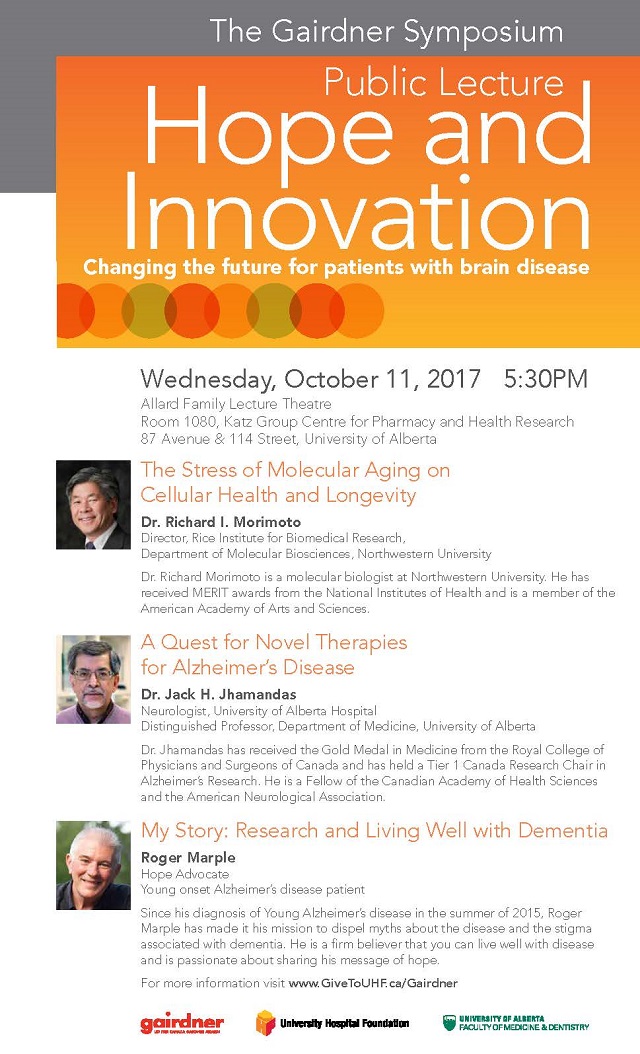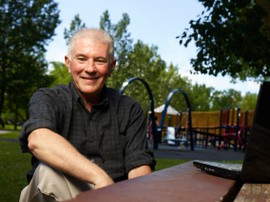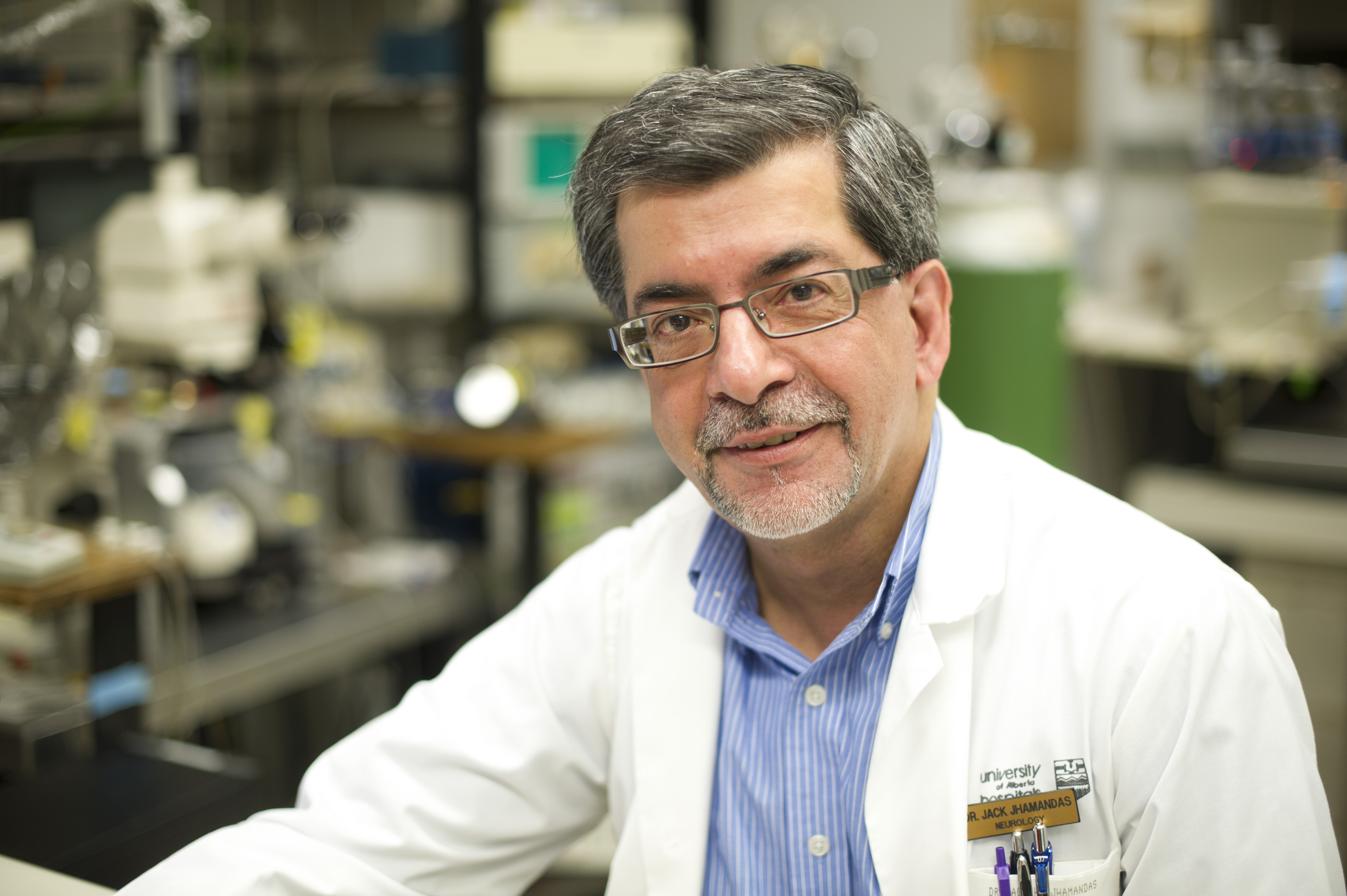
The Gairdner Symposium Public Lecture will be held on Wednesday, October 11 at 5:30 p.m.
Since being diagnosed with early onset Alzheimer's disease in the summer of 2015, 59-year-old Roger Marple has good days and bad. In fact, how the degenerative brain disease impacts him can change by the hour. He has struggles to be sure, but Marple is a firm believer in the power of living each day to its fullest.
"Live for the here and now. Enjoy life now. Go out and play golf, go travel. Whatever it is that floats your boat. Get out there and enjoy life," said Marple. "The point I'm making is that people can become stuck thinking about end of days. They're not looking at the here and now. They're not realizing all the good life they can still live."
Marple has made it his mission to dispel myths about Alzheimer's and the stigma associated with dementia. He, alongside prominent scientists, will share a message of optimism at the upcoming Gairdner Symposium Public Lecture on October 11, Hope and Innovation: Changing the future for patients with brain disease.

Attendees will hear a first-hand perspective from Marple on living with Alzheimer's and learn of the importance of research to find effective treatments-and a cure-for debilitating brain disorders.
"For me, everything that I take advantage of to live well with the disease, absolutely everything goes back to research. And I mean everything," said Marple. "I do hope for the future and I really honestly believe that someday there is going to be a breakthrough."
Marple will share the podium with Richard Morimoto, a professor at Northwestern University and one of North America's leading researchers on brain disorders, plus Jack Jhamandas, a neurologist and distinguished university professor at the University of Alberta. Both researchers believe science is making rapid gains.
"We are making enormous progress, not only in understanding the biology of this condition, but also the social and psychological determinants of Alzheimer's disease that play a key role in what patients experience," said Jhamandas, a member of the Neuroscience and Mental Health Institute at the U of A.
"We should all be more hopeful with the level of research currently underway at major biomedical research centres at universities around the world," added Morimoto, director of the Rice Institute for Biomedical Research at Northwestern University. "Another reason to be hopeful is that efforts on other neurodegenerative diseases such as ALS, Huntington's disease and Parkinson's have identified common underlying mechanisms that have accelerated the rate and level of discovery."
According to Jhamandas, there is an unparalleled amount of scientific activity underway to combat brain disorders like Alzheimer's disease-research made more pressing because of a rapidly aging population in North America and many other parts of the world. Currently approximately 500,000 Canadians are living with Alzheimer's. That number is expected to spike as the proportion of Canadians aged 65 and older will almost double over the next 20 years-a phenomenon known as the 'silver tsunami.'

"There is a real sense of urgency to try and develop a disease-modifying treatment. That is really the holy grail," said Jhamandas.
While there are no solutions yet, Marple is making his own effort to move the science forward. He is currently involved in a clinical trial testing a medication to improve cognitive abilities and hopefully buy him more time.
"Hey, win, lose or draw, they need people to step up to the plate and put their theories to work. They really do," said Marple. "I'm seriously grateful for what they've done for me. And I don't forget that. Anyday, anytime, anywhere. My gratitude runs deep."
The Gairdner Symposium Public Lecture 'Hope and Innovation: Changing the future for patients with brain disease' will be held on Wednesday, October 11 at 5:30 p.m. The event is hosted by the U of A's Neuroscience and Mental Health Institute, Faculty of Medicine & Dentistry, and the University Hospital Foundation. For more information or to RSVP, visit www.GiveToUHF.ca/Gairdner.